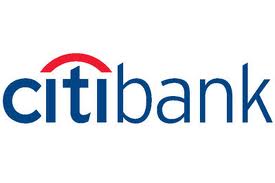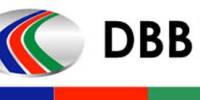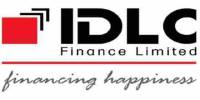Trade Service of Citibank Bangladesh
Trading is one of the basic activities of any economy which started thousands years back. With the passes of time trading is getting flourished day by day. Bank is such intermediaries which made trading more quick and smooth. Now trading has no boundary. It has become global and has been touched with millions of customers all over the world. As trade has been global the involvement of global banking in trading has been added a new dimension. Citibank N A is such a global bank which is serving the trade sector of different region of world for more than 200 years. Among financial service industries only bank can surpass other types of financial institutions in terms of providing wide range of economical services. It smooth the way of transition from barter trade to modern banking.
Banks are strengthening countries economy by creating and transferring funds both inside and outside the countries. Banks facilitates an effective channel for cash flow like our vein through which blood circulates into the body. It carry out business by developing cost benefit customized products and technologically viable services for their possible customers. Now this sector became so competitive that every moment banks are finding innovative way to grab customer.
The modern era of banking concept has been evolving eventually. The word “bank” obtains from the words “Banque” (French), “Banca” (Italian) and German word “bench” as in ancient time Jews used to do their business of lending money sitting on a long bench. Though nearly seven hundred years ago more or less financial institutions came similar to bank but modern banking has been started its journey in physical form of a bank in1668 named “Svingss Pis Bank” in Stockholm.
A Country’s sustainable economic growth depends on her responsive banking business, as without banks no one can imagine industrialization. Bank provides business and gives support to the promising industries of a country.
Objectives
- Analyzing trading scenario of Citibank N A Bangladesh
- Describing LC processing of Citibank N A Bangladesh
- Describing nature of tasks of trade service, Citibank N A
- Analyzing difficulties of LC processing
- Findings feasible solutions of difficulties
Introduction to Citi N.A
Citi is the world famous global financial services company with millions of customer accounts in more than 100 countries. It provides a wide range of financial products and services, including consumer banking and credit, corporate and investment banking, insurance, securities brokerage, and asset management.
Citi is structured with three major business groups – Global Consumer, Markets & Banking, and Global Wealth Management.
The Citi Global Consumer businesses comprise the financial service sector’s most diverse consumer product offerings, including banking services, credit cards, loans and insurance. This business also offers industry-leading technology, a strong worldwide presence and a powerful global franchise in Citibank. Markets & Banking consists of Global Banking, Global Capital Markets & Transaction Services. Global Wealth Management is a top-tier global wealth manager providing some of the best institutional capabilities available today. Serving both private and institutional clients, Global Wealth Management taps the strength and resources of Citi to maximize value and service. Citi Alternative Investments delivers a broad offering of alternative investments, including hedge funds, credit structures, and private equity, real estate, and other private placement and special investment opportunities. In addition to the standard banking transactions, Citibank offers insurance, credit cards and investment products and their online services division is among the most successful in the field claiming about 15 million users. Citi is doing the business with seven global business regions which are Africa, Asia-Pacific, Central America/Caribbean, Europe, Middle East, North America and South America.
Citibank N.A. commenced in Bangladesh during 1987, with the opening of a representative office. Citibank N.A. opened its first full-service branch in Dhaka, on 24th June 1995. During last 14 years through dimensional services Citi has become one of the major international banks in Bangladesh.
Products and services offered by Citibank N.A
The bank is structured according to the four product divisions: Corporate Banking, Financial Institutions, Cash Management and Treasury. There are also four other departments that can be termed as support and these are Operations, Credit Administration, Financial Control and Human Resource.
Corporate Banking
Corporate Banking in Citibank is divided into two main segments:
GRB (Global Relationship Banking): In which the RMs basically deal with the clients (multinational companies in Bangladesh) with whom Citibank has global relationship. There is a single Parent Account Manager (PAM) in the country of origin of that MNC who is responsible for looking into the credit relationship between Citibank and the company worldwide. Any credit extended to the company has to be approved by the PAM.
TTLC (Top Tier Local Corporate), as the name suggests is the segment in which only the top performers (basically the first three ranked companies) of any industry approaches to be Citibank’s clients.
Citibank provides both deposit products and loan products to its corporate clients. The loan products are of varying tenor and purpose. Citibank N.A. Bangladesh also provides structured finance products. The main activities involved in Corporate Banking division of the bank include: communication with customers and calls. The RMs (Relationship Mangers) try to establish contact with key CBG customers; know about the status of their capabilities. The next step is to collect customer information and make a detailed analysis of the needs of the client matched with what the bank can offer. After agreement of both parties, the bank gets approval from the lending unit. Once companies have become a client with credit relationship, the RMs then have to monitor the performance of the company and ensure that no classification of credit occurs.
Financial Institutions
The Financial Institutions department caters for the need of various banks and non-bank financial institutions as well as NGOs, not-for-profit organizations and diplomatic missions. The core product is the correspondent banking services.
Besides there are various electronic banking services, which enable FI, clients perform large domestic and international transactions efficiently and safely.
FI department mainly facilitates international trade conducted by Citibank N.A., Bangladesh. Citibank does L/C advising, confirming, transferring, guarantying and negotiating and reimbursing. In order to do so the FI department of the bank provides the local banks direct facilities or credit lines that includes OSTBT (Ordinary Short-term Banking Transaction), Local bill discounting, CTC credit line etc. Credit line for treasury purpose includes PSR facilities. Like the CBG Department, the FI-RMs also try to establish contact with FI customers. After that, the RMs collect customer information and make a detailed analysis of the needs of the client matched with what the bank can offer. After agreement of both parties, the bank gets approval from the lending unit.
Cash Management
Cash Management deals mainly with deposit collection i.e. is involved in liability management of the bank. For this, the team has to go out on calls to bring about customer deposits and get companies to open account with Citibank. Cash Management team works closely with the Corporate division and with FI department (For NGOs, NBFIs, Insurance Companies and Diplomatic mission).
The products and services offered from this department include:
- Online fund transfer between Dhaka and Chittagong.
- Efficient collection mechanisms at different outstation points.
- Secured electronic payment mechanism at over 100 locations across the country.
- Innovative and competitive deposit products.
- Web-based electronic banking services.
- Prompt distribution of inward remittance at competitive rates.
- Mobile banking.
Citibank is in a position to offer customized services with the help of state-of-theart technology to support high volume of payments and collections. The Citibank products such as World link enable effective payment in more than 40 currencies through drafts or wire transfers. Simultaneously, the strong relationships of Citibank N.A., Bangladesh with the nationalized commercial banks within the country enables payments to reach virtually to all the corners of Bangladesh.
Treasury
The treasury of Citibank Bangladesh meets all the foreign exchange related requirements of the valued corporate customers. Citibank Bangladesh Treasury has been giving excellent and innovative services to the clients since its inception in 1995. These clients can establish direct contact with the treasury for their foreign exchange requirements. Their local and global strength in treasury products enables them to offer the most competitive foreign exchange rates for Spot and Forward transactions. Apart from competitive foreign exchange rates Citibank has other value added treasury services:
The products and services offered by treasury
Foreign Exchange
- Ready & Spot
- Forward
- Currency Swaps
- Deposits for Various Maturities
- Bills Discounting
- Inter-bank Term Deposits
Money Market
- Overnight Deposits
- Term Deposits
- Discounted Securities
Citibank is also a very active player in the country’s Swap Market. They are always working very closely with Central Bank and other regulatory organizations to offer their local and international expertise for the development of new products and markets.
Other Departments
Financial Control
The activities of this department include managing the financial books of the bank; checking all entries of the book are according to standards, preparing daily reports for Bangladesh Bank, revenue appropriation and calculations, setting the internal pricing rates etc.
Credit Admin
This department deals with credit risk or market risk of projects. Other responsibilities of the department include monitoring credit facility, checking the credit approvals prepared by the Relationship Managers, monitoring the Relationship Managers’ activities relating to plant visits. The Head of this unit reports to the Country Risk Manager (in case of Citibank, Bangladesh, it is the Chief Country Officer).
Operations, Technology & ICU (Internal Control Unit)
The Operations department of the bank deals with account opening, deposit management, loan booking, L/C opening etc; the Technology part involves processing of transactions and maintenance; and ICU is involved in reconciliation of Nostra accounts and also making sure that every day the suspense account balance is 0.
Human Resource
The responsibilities involved in the Human Resource department include recruitment, selection, employee performance evaluation etc. Being a multinational bank, besides Citigroup policies, certain US laws are applicable to the operation of Citibank in Bangladesh; anti money laundering and adhering to such general compliance issues of the bank are other major responsibilities of this department. Although compliance and human resource are two different sides, in Citibank Bangladesh, both are headed by one individual.
SWOT analysis
Strengthens
- Higher control over the bank branches are possible as there are few in number and located in Dhaka and in Chittagong.
- Since bank branches are very small in number the related operational expenses are also low.
- Excellent environment for efficient communication.
- Since the bank does not cater to consume banking it is possible to give extra time to their corporate customers.
- The bank has highly efficient employees.
- Can bring in experts from other regions of the bank if needed.
- The bank is extremely careful in expansion decision.
Weaknesses
- The bank is overshadowed by India.
- There are certain security and IT rules and regulation that are not fit for such small operation. These are significantly hampering the banks efficiency.
- The bank is understaffed because of decision from the region. This is resulting in extreme pressure over the current employees thus reducing efficiency.
- The brand name is not well known in Bangladesh though Citigroup is currently ranked number one in the world.
- They do not offer the entire spectrum of banking service making it less lucrative to customer.
Opportunities
- The bank has the advantage of economies of scale from handling the corporate account.
- Since Citigroup is well known worldwide foreign investors would be more parallel to do banking with them compared to others.
- They have huge potential of profiting from merchant banking.
Threats:
- There operation is very small compared to other multinational banks making it suitable for a takeover.
Project Literature review
The concept of foreign trade is reformed on to the modern way gradually. Business people of any corner of the world are now enjoying modern banking privileges for advanced banking network. Foreign Exchange is meaningful division as numbers of trade business are increasing day by day. Nowadays banks are doing competitive business so the diverse facilities increasing in addition.
Foreign trade risk association is very far above the ground, so the involvements of bank or legal party can lessen the risk in to a low level. In an international trade transaction involving goods or services, the buyer and the seller negotiate details about the method and timing of both payments and delivery. These negotiations require attention to complex details concerning credit arrangements, transaction structuring, legal issues and political and cross-border risks. In trade the dealing between seller and buyer is based on LC (Letter of credit) which refers such documentation which creates negotiation. Depending on trade nature LC is categorized.
Cash L/C: Cash Letter of Credit payments are given from parties’ cash deposit after receiving goods from beneficiary.
Sight L/C: In sight letter of credit exporter sending the goods to importer and advising bank send necessary documents to issuing bank. After getting original documents in hand without discrepancies then issuing bank instantly gives payments to beneficiary’s bank.
Deferred L/C: In terms of deferred letter of credit the payments has been made in the maturity period means 90 days,120 day, 150 day which is decided between the two party. Mainly garments raw materials which are imported payments of those are given on this condition.
Negotiable L/C: Negotiable letter of credit is a payment way where nominated bank purchased bill and which is also called bill of purchase.
Negotiates the advance amount and by cutting interest, transaction fees, reimbursement charge beneficiary gets left amount.
Acceptance: In terms of Acceptance the payment has not made immediately after obtaining documents. Here issuing bank gives acceptance message to the negotiating/advising bank. Sometimes exporter draws money by submitting bill of exchange at a discount rate from his bank or another bank
Back to Back L/C: Back to back L/C is an arrangement where exporter becomes an importer and issues letter of credit against its first letter of credit. In case exporter needs to import raw materials using which exporter manufacture product and export those goods to other country. Here first L/C works as collateral. Back to back L/C contains 75% value of master L/C.
There are some other types of letter of Credit. Those are not that much known to all. They are Red Clause, Transferable L/C and so on.
Some Important Parties Related with Letter of Credit Process:
Applicant/Importer: applicant or importer who wants to purchase goods and for this purpose applicant request bank to open L/C.
Beneficiary/Exporter: Beneficiary who makes a deal with importer that he will sell the good to the importer and send the goods to importers country in exchange of money.
Issuing Bank: Issuing bank is importers bank who issue letter of credit on request.
Advising Bank: Advising bank works to advise the L/C and give the genuineness to the beneficiary. Mainly the advising bank chooses on behalf of exporter’s wish but it can be issuing bank branch or correspondent bank situated in exporter’s country.
Negotiating Bank: Advising bank can be negotiating bank if the bank is recommended by beneficiary. Negotiating bank negotiates the bill and gives payment to the beneficiary based on buyer’s draft.
Conforming Bank: Conforming bank assure credit in the lead and at the request of issuing bank. Conforming bank is generally the advising bank who gives this confirmation.
Reimbursing Bank: It is the bank who reimburses the payment to the negotiating bank after getting payment from issuing bank.
Products under trade service
Trade service mainly deals with export and import L/C processing and also deals with loans and guarantee on some small context. These units deal with some critical products and some of them are discussed
Imports
- Import LC and Amendment issuance
- NULC ( Not Under LC ) issuance
- Export LC advising
- Assignment of export LC
- Import bills Scrutiny & payments
- Import delivery order
- Export development fund processing
- Advanced payment under LC and NULC
Exports:
- Export LC / contract Lien
- Exp issuance, Export bill and export collection
- Software and service export
- Cash incentive processing
- Inward TT against exports
- Advance proceed
- Export bill negotiation & discounting
Customers of trade service
Almost every Export-Import commodity sector approved by Bangladesh Government and Citigroup is served by Citi Trade Services. At present the major Export-Import Commodity Sector covered by Citi Trade Services are-
- Readymade Garments Sector
- FMCG Sector
- Pharmaceutical companies
- Energy and power Sectors
- Telecom Sectors
- Tobacco
- Cement
- Baby Food and Other Food Products
- Paint and varnish
- IT Software
- Packaging Products
- Offshore EPZ customers
- Other banks
- Chemical industry
- Agro chemical industry
- Consumer goods
These are the main pool of customers of Citi import and export team.
LOP (Local operating process) of trading for Citbank N A
LOP is prepared by Citibank N A which is followed as rules for trade service. Like other foreign banks, CITI follows the rules and regulation of trading conducted by Bangladesh bank. Import and export of goods is regulated by the Ministry of Commerce in terms of the Import and Export (control) Act, 1950 through Import Policy order (IPO) in force and public notice issued from time to time by the office of Chief Controller of Import and Export (CCI & E).
The fundamental rule of trading department based on-
- Dealing with known customer
- LC authorization form.
Dealing with known customers: Citi must ensure that they deal only with the known customers having a place of business in Bangladesh and can be traced easily if any occasion arises for this purpose. In case of a new customer, Citi obtains a certificate from Authorized Dealer. Here they collect the information about whether the customer has any no bill of entry is due/ overdue for submission.
LC authorization form: A letter of credit is an instrument issued by a bank on behalf of its customers, constituting an undertaking by the bank to pay the beneficiary a stipulated some of money, either on demand or at specified future, on presentation of documents in compliance with the term of the LC. Citibank NA is authorized to issue “Letter of Credit Authorization Form’ (LCAF) in conformity with the IPO allowing imports into Bangladesh. The LCAF available with Citi, are issued in 5 copies each. On these one marked “For Exchange Monitoring Purpose” is used for opening LC and for effecting remittance.
Terms and conditions for opening import or export L/C
Citi has some conditions for opening L/C which are merged with the requirements of Bangladesh Bank and also with the requirements of parent of Citi. Some very basic conditions are discussed.
L/C authorization only on behalf of their own (clients)
CITI establishes LCs against specific authorization only on behalf of their own customers who maintain accounts with them and known to be participating in the trade.
Documentation and payment
All LCc and similar undertakings covering imports into Bangladesh must be documentary LCs. These LC’c should provide for payment against full set of onboard (shipped) bills of lading, air way bill, railway receipt, truck receipt showing dispatched of good covered by the credit to a destination in Bangladesh.
All LCs must specify the submission of signed invoices and certificates of origin.
Relevant information for amendments
Citi needs to send the copies of LC and subsequent amendments (if any) including other relevant information to the land port authority. The amendment carries the reference number of the main L/C.
L/C on behalf of beneficiary is not permissible
It is not permissible to open import LC in favor of beneficiaries. Citi can only make LC for applicants. Although applicant imports their product from the beneficiary into Bangladesh by the competent authority, Citi cannot make LC on behalf of beneficiaries. After satisfying all these terms along with the conditions of Bangladesh Bank Citi can make L/C for their customers.
Terms and conditions for customers
Citi provides some conditions for clients for being registered as their customers. Only after satisfying those terms a company can be addressed as their customer and they can issue L/C through Citi trade service. Those terms are discussed.
- Continuing Commercial credit Argument (Credit Document)
- Valid Import registration certificate (IRC). Import of capital machinery can be imported without IRC
- Valid export registration certificate (ERC) (for RMG client)
- Attested copy of Bonded Warehouse license. (for RMG client)
- Copy of TIN (tax identification number) certificate
- VAT certificate
- Revenue report of company
- Valid BGMEA membership certificates
- Tax waiver certificates ( if any)
Compulsory documents for L/C transaction
The customer will submit the following documentation in respect of each L/C issued-
- Letter of credit application
- Letter of credit authorization (LCA) form
- IMP form
- Valid and firm Proforma invoice or indent- accepted by applicant
- Insurance cover note
- Insurance premium payment copy
These are the basic documents for any L/C transaction but depending on industries or companies some other documents are also required. For example pharmaceutical companies must submit block list with L/C application.
Trade work force
In Bangladesh, Citi Trade Service in one of the most profitable departments. Behind this success around 35 dedicated employees are working. It has two types of employee-Citi Employee and Non-Citi Employee (Those are hired from Manpower Supply Agency depending on special demand). The Employees of Citi Trade are very young and energetic with top class education. As Citi Trade is fully automated, the employees have to be skilled about IT. Depending on experience the positions are designed like – Assistant Officer, Officer, Senior officer, Assistant Manager (Q), Assistant Manager(R), Manager, Resident Vice President, Vice President.
Training for trade
To increase the efficiency level of the employee, Citi gives training on –
- Core banking
- Customer Services
- SWIFT
- Export and import Policy
- Foreign Exchange Guidelines
- IT
- Reporting
- Anti-Money Laundering Policy
Every year training program is rearranged both for employee and non employee on a regular basis depending on demand.
Technological support
Citi Trade is highly automated by Generalized and Customized Software with strong communication network both intranet and Internet. Every branch in the world uses same common software and also some special software depending on applicability. It has regional central server and also backup server, as a result from any branch of the world, if there is any transaction is entered in the software, server updated and every branch can enjoy real-time updated status of transaction.
Its information security is very high, instead of storage of Paper of transaction, they store the Image of the Paper in database, as it can be used in every point/ by every parties of a transaction process at real-time need. Another time-saving tools of Citi Trade Auto Report generating software and auto data tracking system, which helps to take quick decision by knowing the status. The IT facilities are maintained by Citi IT department. It also encourages the employee to develop own software/ templates in their own field by using experience and expertise. And recently Global Finance, an international finance magazine with circulation in more than 158 countries, has named Citibank N.A. Bangladesh as the ‘Best Internet Bank 2008’ and ‘Best Trade Banking 2010’. In providing Trade Services, Citi Trade- Bangladesh is connected with global network by using Internationally Common Customized Software. Those can be categorized in various categories depending on application.
Setbacks of trade service
Lack of employees
Everyday citi trade service deals with huge numbers of transactions of hundreds of customers. But compare to their workload their number of employees are less. They don’t have enough backup of workforce. Due to huge work load most of employees has to stay at office even after 9.00pm. It creates a kind of discontent among employees.
Less market popularity
Citi is bound with regulations and sanctions. They maintain each and every rule properly. But in Bangladesh we know that all companies especially local companies are not legally bound enough. So these kinds of companies cannot be the part of Citi. As a result Citi is losing popularity in market.
Unexpected gap between customers and Citi: Citi trading process is lengthy compare to other bank. They take more time to process a L/C than any other global bank. They main reasons behind this are hug regulations, sanction issues and off course involvement of TCS. As TCS is process every transaction from
India they takes much time to solve any issues. It is a great challenge for Citi trade service to convince their customers always about the timing of processing.
Recommendations
Creation of new job post: To remove the shortage of man power Citi can increase some new job position in trade service department. It will ensure backup of existing employees and will increase the level of satisfaction among employee.
Ensuring flexibility of service: Citi can be flexible for some level of transactions. This flexibility does not mean absence of regulations. Depending on urgency trade service can avoid TCS to make a transaction quick. Based on customer loyalty they can b a little bit flexible on documentation.
Conclusion
Citibank N.A as a bank has enhanced its market presence and operations within a very short time. However, they are still not the market leader. Citi has lots of areas in which to improve the current situation. To be the market leader Citi must take careful steps in the field of increasing exposure towards getting more customers and to increase their value added services.
Trade service department of Citi Na Bangladesh working with the corporate client and financial institute, has showed the excellence of their activity from the beginning. To improve their service for the customers they emphasize on the new product development. And to run their activities smoothly, they ensure quality about the management information system (MIS) and overall technological improvements. Citi’s disciplined operation in trade ensures their superior quality of service. All the employees work with their full effort to get the work done in due dates. The motivation to work with full dedication is further boosted by lucrative employee benefits and reward system and other HR planning. Although employees of Citi’s trade service department is working with their full efforts, it is yet performing below potential and currently has the potential to actually increase its market share through its decision to increase its level of operation. Overall
Trade Service is a lucrative department from which Citibank N.A is earning a huge amount of revenue. But this department is still underutilized. The potential customer base for Trade is increasing with time. More development of new services are available in the market by Citi, more will be the demand for their services. Banking no longer simply mean the facility to take loan or deposit money or to facilitate import and export. Customer demand more these days as more product offers are available in the market. Banking means extra services and facilities. Thus to facilitate these services and activities, Citi must work upon their setbacks, so that they can beat the competitors and become one of the largest multinationals in Bangladesh.
















